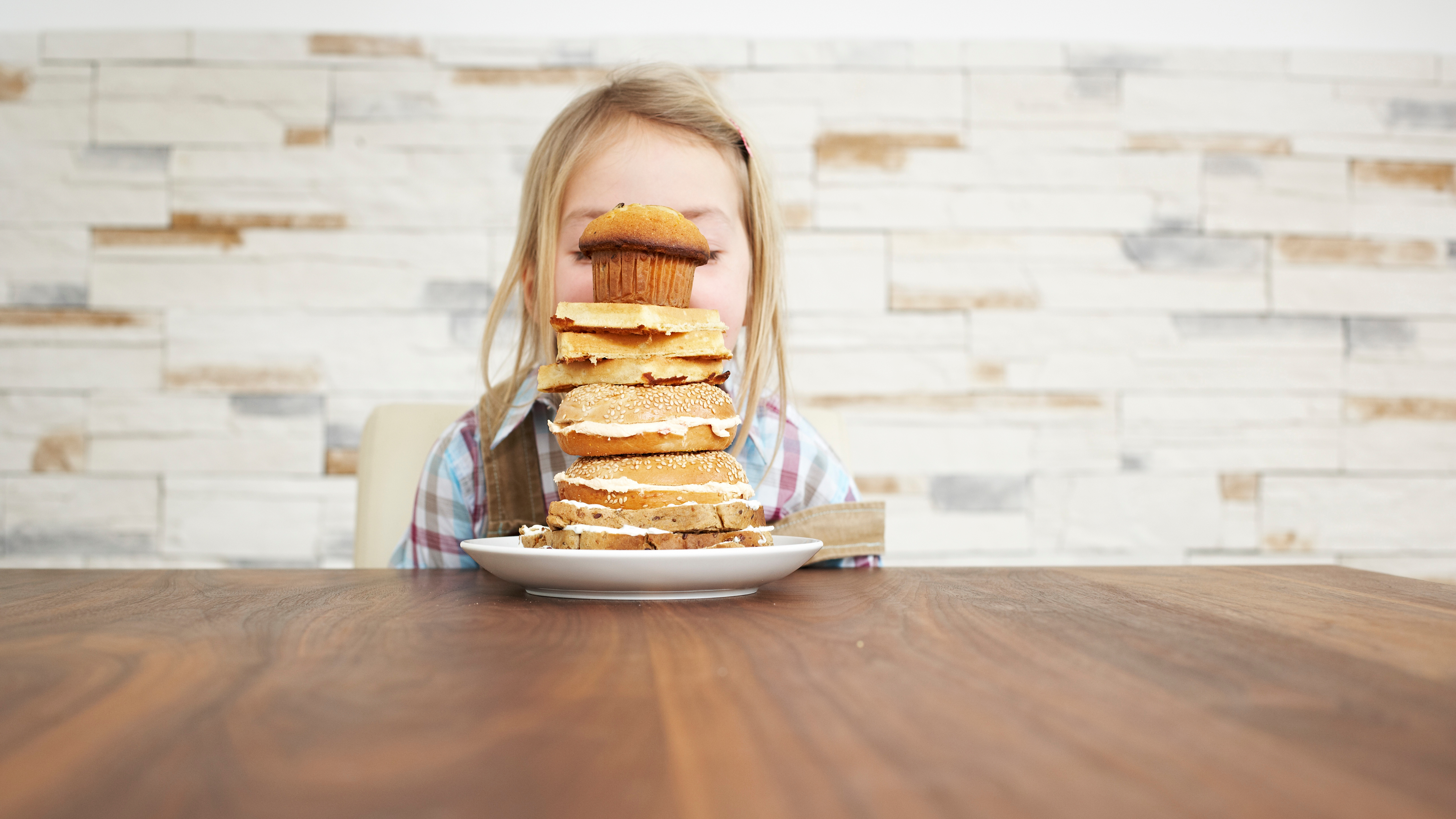Should Parents Be Held Accountable For Their Overweight Children?
Every modern parent knows the struggle and constant conflicts involved with what seems like a fairly natural process: feeding their child. Breastfeeding or bottle? When should you start solid food? And, when the kids get a little older: What can you do with a picky child who refuses vegetables, short of force-feeding?
The stress of organizing your child's menu can be greatly exacerbated if they happen to be overweight: Then you're not only worried about their health, but are also faced with a "tremendous stigma" socially, according to "The Checkup" column yesterday in The New York Times by Perri Klass, M.D. In "Do Parents Make Their Kids Fat?", Dr. Klass and others discuss how much culpability can be attached to the well-meaning parent:
There's an underlying assumption here about what adults can control, and about how children can be controlled, if only their parents would take the trouble, or make and enforce healthy rules for the whole family, or read the nutritional information on the back of the cereal box.
This column was apparently inspired by the reaction to one Klass wrote in November about "How Not To Talk To A Child Who Is Overweight." Because the internet is awesome, comments included shaming statements about "overweight parents feeding garbage 'foods'... to their overweight children," and scolds like "Wake up parents... Your kids don't HAVE to snack all the time. You are ruining their future health and self esteem."
Much as we may sometimes wish our kids were obedient robots, and we may pine for the time when we fed them creamed spinach without a whimper on either side, the fact remains that these little humans have their very own strong opinions, and rightly so. I've mentioned before that when my twins were babies, I loved making their food, roasting a variety of gourds and pureeing with apples and pears. They never even had a bite of sugar until their own first birthday cake. Since then, though, it's been an uphill battle, where I can still find stashes of Halloween candy in the back of a dresser drawer in February, as they know they have to furtively hide this contraband from me, or else I'll just toss it (well, not the chocolate).
Having twins gives me a built-in control group, and I can assure any fretful parents that we attest a lot to nature over nurture. Obviously, we have organized our kids' mealtimes the exact same way, but we have one extremely adventurous eater (my son) and one where I can list the things she'll actually eat on two hands with some fingers left over (my daughter). Most of our dinners do not come from a box or a drive-through lane, but from scratch. We sit down at the table and eat together. There are no screens allowed. These factors all help our dining room avoid the "obesogenic" environment that the NYT describes. And yet, my daughter will prefer to have only a cup of plain rice while the rest of us eat delicious panang curry, shaking our heads. I was pleased to see that the NYT backs up my amateur research: "No one is saying that biology has to be destiny, pure and simple, but it is clear that the healthy eating strategies that are easy to implement with some children are far more difficult with others."
So far my kids are extremely healthy (knock wood). But do I worry that my daughter's disdain for food from the ground will eventually adversely affect her health? (The two strawberries I put on her breakfast plate this morning eventually got moved back to the fridge, uneaten.) Of course I do. So, like many parents, I was quick to click on Dr. Klass' column. And I am somewhat soothed by her summary:
For all children, whatever their risk for obesity, good parental decisions about nutrition really matter: It's important not to overfeed babies, to keep junk food and sugary drinks out of the house, to not let kids eat in front of the screen, and to encourage kids to "eat the rainbow" of fruits and vegetables. But those who rush to judgment should be aware that it is not at all simple to "say no" all the time to an extra-hungry child, or to "feed more vegetables" to the kid who refuses to eat anything green... Most parents—really—are doing our best, in the complicated food environment in which our children are growing up, with the daily struggles of family life.
So, while force-feeding is not an option—I'm still going to keep pushing those strawberries for snack.
